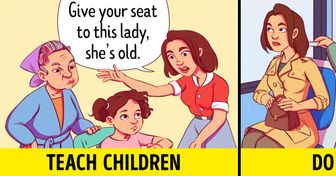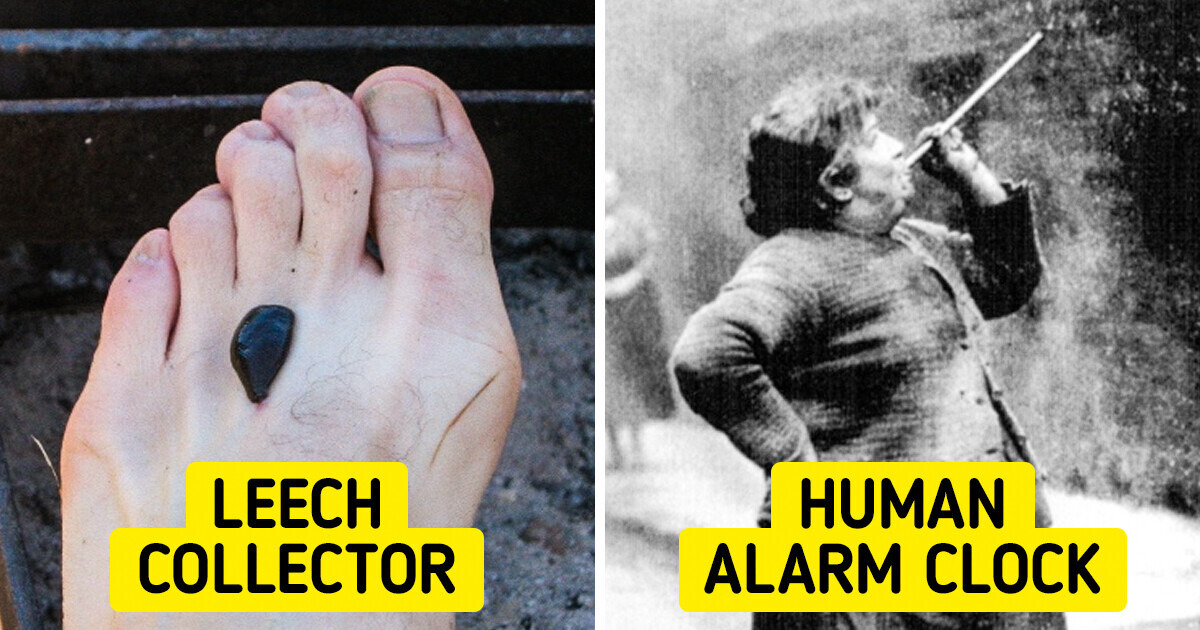15 Double-Standards That Can Even Ruin Relationships in Perfect Families


We live in a world where most of the things we want are just one click away. From products to services, we can access everything on the web. What about the jobs we want to have — will they be replaced by AI soon? Experts say about 300 million of them will be.
Change is the only constant in our lives and when it comes to jobs, we felt inspired to go back to the old times and see what were the most interesting occupations that have vanished or just turned into a nice read in a history book.
Even if the first mechanical alarm clock was invented in 1847, in the 1900s, they were still a rare thing to come around because they were not cheap. As a way out, people hired a knocker-upper, whose job was to wake people up in the early hours of the morning. It used to be done by elderly women and men; they would use long fishing rod-like sticks, soft hammers, and even pea shooters to tap on clients’ windows to wake them up. It was just like being a human alarm clock!
Mary Smith, pictured above, was one of the most famous knocker-uppers, charged sixpence a week to wake up her clients in East London.
A knocker-upper in The Netherlands, 1947
During the 18th and 19th centuries, the demand for corpses for medical research was high, but dissecting human bodies was still an illegal practice in some places. As a result, resurrectionists, also known as body snatchers, who often worked in teams and operated in a legal gray area — would steal corpses straight from graves in order to sell them to medical schools and practitioners, in the name of science.
A leech collector was someone who gathered leeches for a living, as medicinal leeches were in high demand in 19th-century Europe. Medical practitioners weren’t able to easily procure them, so the leech collectors would step in. They’d usually attract the blood-sucking worms to the legs of animals, often old horses. Sometimes the worker would use his own legs and would detach the leeches, store them in jars or bags and later sell them to doctors or pharmacists.
The career was seasonal, and leech collectors only worked in the warmer months, when the leeches were active.
A lamplighter was a person who lit and maintained candle or gas streetlamps in the past. They usually used a long pole with a wick or a hook to light or extinguish the lamps every evening and morning. The workers were respected and trusted because they made the city streets safer and brighter. Today, just a few places where gas lamps still exist and are lit by such workers, making lamplighters more of a tourist attraction and a reminder of a bygone era.
A job commonly held by boys, a linkboy was someone who carried a flaming torch — made from a burning pitch and tow — in order to light the way for citizens at night. They were common before the introduction of gas lighting and the fee for a linkboy was a quarter of a penny. Many houses in the UK still have the link extinguishers on the exterior walls, similar to an oversized candle snuffer.
Phrenologists believed that the shape and bumps on a person’s skull could reveal their personality traits and intelligence levels. They examined the skull’s contours, measured them, and made assessments about the individual’s character. Phrenology gained popularity in the 19th century, but it lacked scientific evidence and is now considered an intriguing historical practice rather than a valid science.
A ragman used to collect unwanted household items and sell them to merchants. They would gather scraps of clothes and paper, which could be transformed into cardboard, and broken glass would be melted down and repurposed. The scavenger would walk around, collecting these items and carrying them in a small bag slung over his shoulder. Typically, this occupation was pursued by men facing extreme poverty as a means of making a living.
Although not very common, there are still some places in the world where the job of rag-picking exists, even if it has changed over time. This occupation has a positive impact on cities with poor waste management systems.
The soda-jerk job was a popular occupation in the early to mid-20th century. Soda jerks worked behind the counters of soda fountains, serving beverages like ice cream sodas, milkshakes, and flavored carbonated drinks. They were known for their skillful technique of “jerking” the soda fountain handle to dispense carbonated water and create fizzy bases for drinks.
Soda jerks interacted with customers, took orders, operated cash registers, and maintained cleanliness. It was a desirable job for teenagers, but the decline of soda fountains led to a decrease in demand. The term “soda jerk” still carries nostalgic charm associated with a bygone era.
Rat catchers were hired to control urban rat populations in the past. Equipped with traps, poisons, and trained animals — such as terrier dogs, also known as ratters — they played a crucial role in preventing disease spread.
Dating back to the 1600s, the job of a herb strewer was to throw herbs and flowers throughout the royal apartments, in an effort to try to mask the unpleasant smells before the construction of sewers in London. Bridget Rumney held the position from 1660 to 1671 and would earn a yearly salary of £24. She would use basil, lemon balm, chamomile, lavender, fennel, and other pleasant-smelling herbs.
Most of these herbs and as well as many other plants can easily be grown at home and studies have shown they can improve our health, thanks to the magical and healing benefits they hold.











